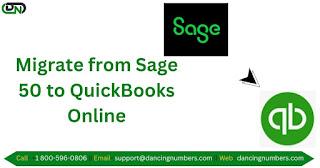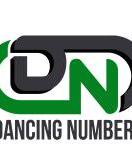Migrating from Sage 50 to QuickBooks Online (QBO) can be a significant upgrade for many businesses. As cloud-based accounting software continues to evolve, many companies find that moving to a platform like QuickBooks Online offers substantial benefits in terms of accessibility, ease of use, and functionality. Below are some of the key advantages of making the switch.
Here are Some of the Benefits of Switching from Sage 50 to QuickBooks Online

1. Cloud Accessibility
One of the biggest differences between Sage 50 and QuickBooks Online is that QBO is a fully cloud-based solution. Sage 50, traditionally a desktop software, limits access to users unless additional cloud-hosting options are purchased. With QBO, users can access their accounting data from any device with an internet connection. This provides much-needed flexibility, especially for businesses with remote teams or individuals who need to manage financials on the go.
2. Ease of Use
QuickBooks Online is well-known for its user-friendly interface. While Sage 50 is a robust platform with advanced features, it can sometimes feel overwhelming for users who aren’t accounting professionals. QuickBooks Online simplifies many processes with intuitive dashboards and easily navigable menus, making it accessible for both accountants and non-accountants alike.
3. Automated Backups and Updates
In a desktop-based solution like Sage 50, businesses are often responsible for managing software updates, backups, and security. With QuickBooks Online, these tasks are automated. Users always have access to the latest version of the software without the need to manually update it, and their data is backed up securely in the cloud. This reduces the risk of data loss and ensures the system is always up-to-date with the latest features and security protocols.
4. Cost-Effectiveness
QuickBooks Online can be more cost-effective for many businesses, especially small to mid-sized ones. Sage 50 requires additional costs for features such as cloud access, multi-user support, or advanced reporting. QBO offers tiered pricing plans that allow businesses to choose a package based on their specific needs, offering better scalability and transparency in pricing.
5. Third-Party Integrations
QuickBooks Online boasts a vast ecosystem of third-party integrations, from CRM systems to payment gateways and inventory management tools. Sage 50, while compatible with some integrations, is more limited in its available options. The extensive app marketplace of QuickBooks Online allows businesses to tailor their software to meet unique business needs, enhancing functionality and automation.
Read more-- Complete Checklist for Sage 50 to QuickBooks Online
6. Multi-User Collaboration
QuickBooks Online offers built-in multi-user functionality that allows team members to work together in real-time, regardless of their physical location. This level of collaboration can streamline workflows, especially for businesses where different team members handle various accounting tasks, such as invoicing, payroll, and financial reporting. Sage 50’s multi-user setup often requires local network configurations, making it less flexible.
7. Better Support for Growing Businesses
As businesses grow, so do their accounting needs. QuickBooks Online’s scalability is a strong advantage for growing businesses. It allows companies to start with a basic plan and upgrade as their needs expand, without requiring significant shifts in how they manage their data. Sage 50, while comprehensive, may require more complex upgrades or additional modules to accommodate growth, which can be both time-consuming and costly.
8. Customizable Reporting and Real-Time Insights
QuickBooks Online offers powerful, customizable reporting options with real-time insights into a company’s financial health. Its easy-to-use reporting features allow users to create and share financial statements, performance reports, and forecasts quickly. Additionally, QBO’s dashboard provides a live view of important metrics, including income, expenses, and profits. Sage 50 offers similar functionality, but QuickBooks Online’s reporting tools are generally considered more accessible and easier to customize.
9. Automated Workflows
QuickBooks Online simplifies accounting tasks by automating repetitive workflows. This includes automatic invoicing, recurring payments, bank reconciliations, and expense tracking. Sage 50, while capable of automating some processes, generally requires more manual input. QBO’s automation reduces the risk of errors, improves efficiency, and saves time for busy business owners and accountants.
10. Customer Support and Resources
QuickBooks Online offers extensive customer support, including 24/7 chat and phone assistance, as well as a vast library of educational resources, tutorials, and community forums. While Sage 50 also offers support, QuickBooks Online’s widespread use has fostered a large user community and numerous third-party resources, making it easier for businesses to find help when they need it.
Conclusion
Switching from Sage 50 to QuickBooks Online can significantly improve how a business manages its finances. The cloud accessibility, ease of use, automated updates, cost-effectiveness, and robust integrations make QuickBooks Online a compelling choice for businesses looking to streamline their accounting processes. For many businesses, the move to QuickBooks Online represents not just an upgrade in software but an investment in increased efficiency and growth potential.
Previous Post- Benefits of Migrating Zoho Books Data to QuickBooks Online

